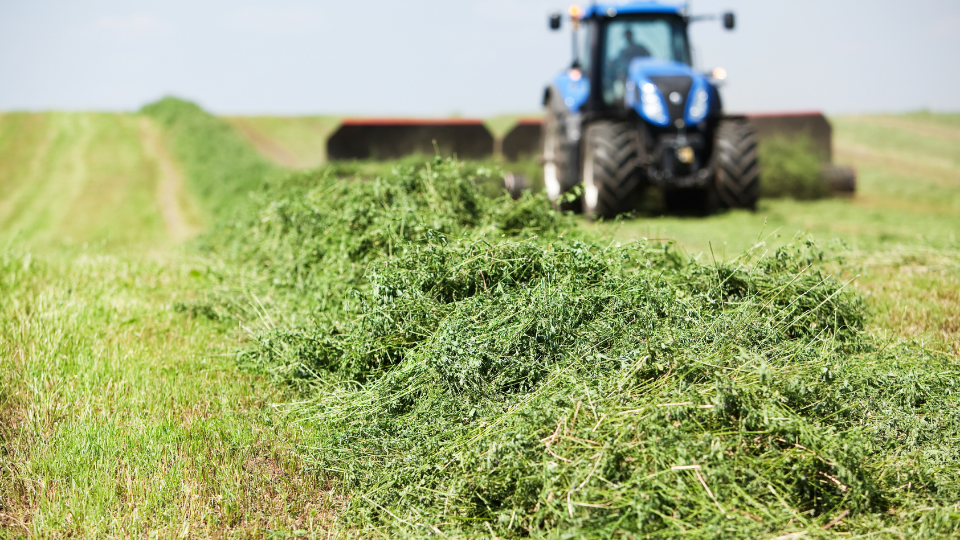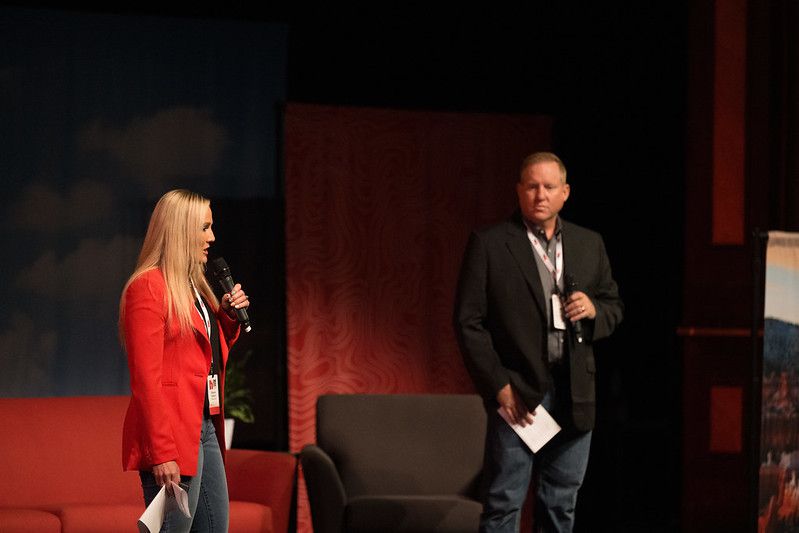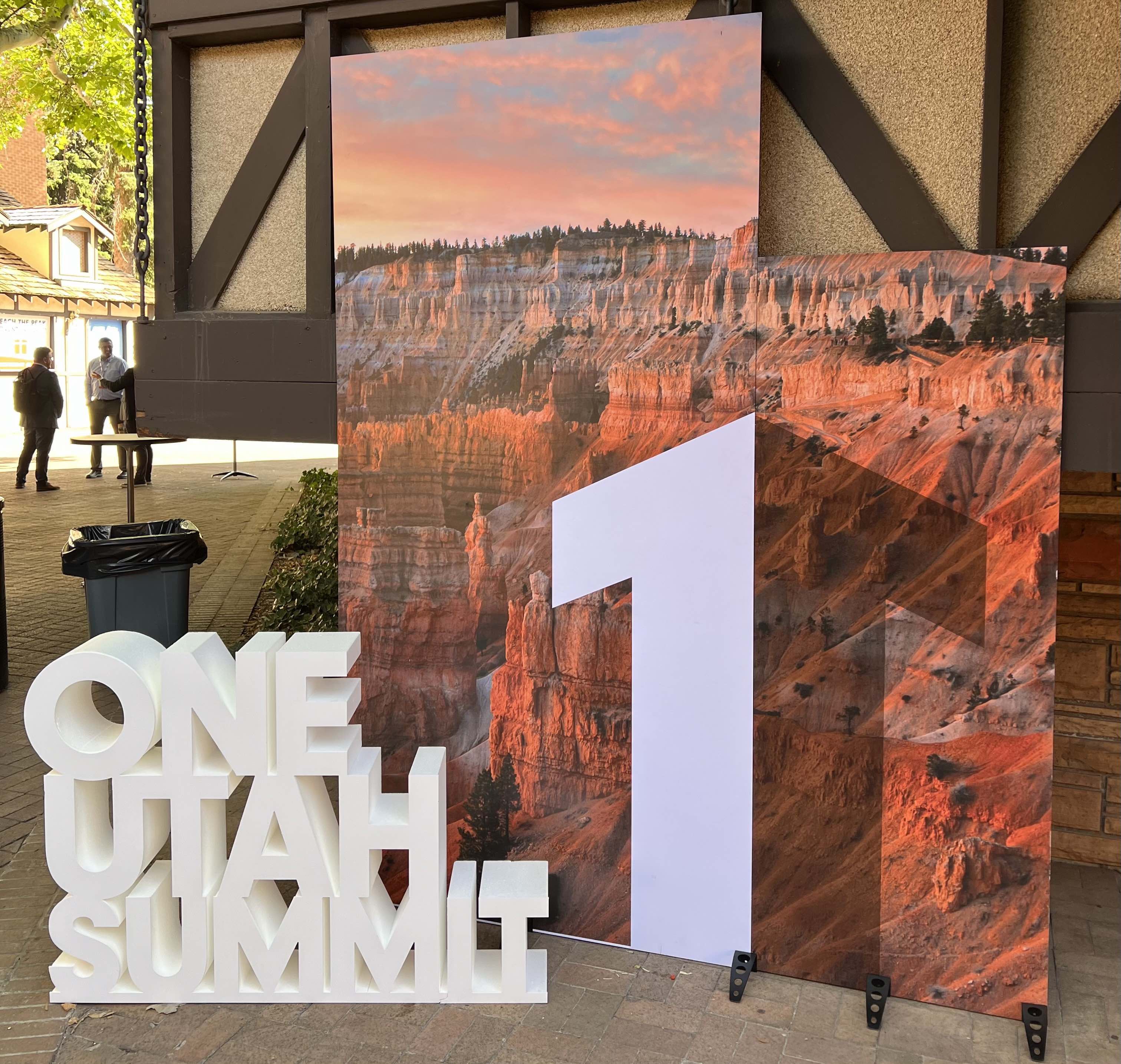Water conservation & agriculture as rural economic development featured at OneUtah Rural Summit in Cedar City
Author
Published
10/12/2023
Government, business and community leaders from throughout Utah gathered in Cedar City last week for the OneUtah Summit. This conference takes place twice a year, once in Layton in the Spring and in the fall in Cedar City where the focus is rural issues, economic development in rural areas, investment and strengthening leadership skills. This year’s conference featured several agricultural producers and presentations related to how agriculture can be a foundational economic driver in rural Utah.
Dr. Earl Creech of Utah State University, one of the foremost experts on alfalfa, presented to state and county leaders on the benefits of growing the forage crop in Utah – both economic and environmental – and sought to dispel some of the narratives being spread about the crop that simply are not grounded in science.
“I wanted to share with the audience a little of the information that shows how alfalfa is the perfect crop for Utah. It is a lot more water efficient that most any other crop we can grow here, whether that is carrots or corn or potatoes,” Creech said. “It is drought tolerant and adaptable to short water situations. There’s really no crop as good for the environment as alfalfa. Unfortunately, there has been a false narrative with misinformation saying otherwise, and we just need to push back against this.”

Creech added that many of the rural communities represented by leaders attending the summit benefit immensely from the economic foundation that alfalfa brings.
“Growing alfalfa pumps so much money or economic stability into these rural communities. I’m not sure many understand this,” Creech said. “We need to continue sharing the science and the economic realities that come from growing such an important crop. It provides so much to our state.”
Following Dr. Creech on the main stage were cattle ranchers Bjorn & Shanna Carlson of Duchesne County. The Carlsons talked about the addition of their USDA inspected meat processing facility in Duchesne County to their Blue Tree Farms business and how it helps decrease challenges with processing meat and improves their supply chain reliability with customers.
In addition to raising angus cattle, the family has expanded its direct-to-consumer business by raising and offering lamb and 100% purebred Kurobuta-Berkshire hogs. Since the pandemic and with the decision to add the processing facility, the family has seen a sizeable increase in business they hope to see continue in the future.
“It was a great opportunity to present at the summit and share with others that it’s not impossible to develop more local meat processing,” Bjorn Carlson said. “I really see this growing more in the future, to have more direct-to-consumer sales. It’s a great option for consumers and more doable for those of us in agriculture.”
 Shanna (left) and Bjorn Carlson present about their direct-to-consumer meat business at the OneUtah Summit
Shanna (left) and Bjorn Carlson present about their direct-to-consumer meat business at the OneUtah SummitIn addition to these agricultural presentations, attendees heard from Governor Spencer Cox on the main stage as he talked about the ‘Disagree Better’ campaign he has championed as part of his service as the chair of the National Governors Association. The effort is designed to reduce the problems with polarized politics and have people debate and disagree on issues in more productive ways.
“Americans need to disagree better. And by that we don’t mean that we need to be nicer to each other, although that’s helpful. We need to learn to disagree in a way that allows us to find solutions and solve problems instead of endlessly bickering,” said Governor Spencer Cox on the initiative’s website. “We’ve forgotten how to persuade without hating each other. But our nation’s history shows there’s a better way, and we all need to re-learn how to disagree better.”
The conference featured breaks with many local agricultural products supplied by Utah’s Own, along with breakouts dealing with topics ranging from the Utah Inland Port and Cybersecurity in rural Utah to drought resiliency and innovations in agricultural water-savings practices.
Candice Hasenyager, director for the Utah Division of Water Resources, facilitated a panel discussion on making the state more drought resilient.
“Water is just essential to life, and we live in a really arid state,” Hasenyager said in an article for KUER. “We have a lot of people who live here right now and more that are coming every day … so it's just really critical that we keep water and water planning discussions at the forefront.”

Later, the Hannah Freeze of the Utah Department of Agriculture & Food similarly chaired a panel talking about water saving technologies being designed and implemented in agriculture.
“We're very aware in the agricultural community that everyone is looking to us and we're here to do our part. But we also like to share the message that … agriculture can't solely bear that burden,” Freeze said.
Other panel members included Mitch Hancock, a dairy farmer from Box Elder County, as well as representatives from water technology and soil health companies including Alan Morrell of Ampac Water Systems, Daniel Cluff of Bactelife, Clay Carter from SAE Inc.
Hancock added that farmers want to be part of the solution and embrace new technology to save water, but that they need partners to help make it more affordable. With small margins in agriculture, efforts like water optimization grants are critical.
Want more news on this topic? Farm Bureau members may subscribe for a free email news service, featuring the farm and rural topics that interest them most!
